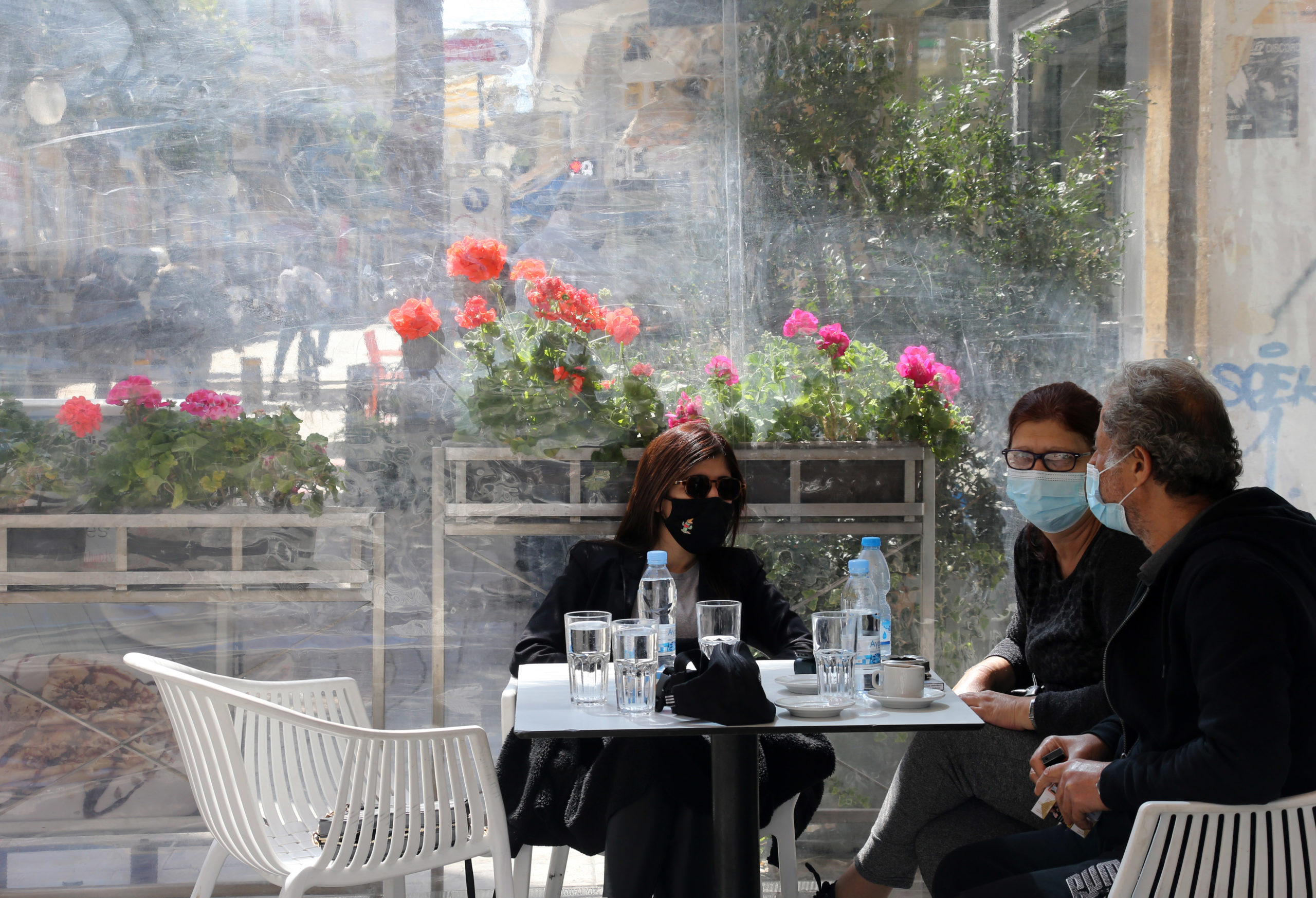Cyprus on Tuesday eased more lockdown restrictions as it tries to restart the economy; people still need SMS permission to leave home if not for work, the curfew stays but is shortened to six hours, public gatherings are allowed while hospitality can welcome customers in outdoor facilities.
1. What are the curfew hours?
Movement is prohibited from 11 pm until 5 am the following day.
2. Under which circumstances can one move during curfew?
The movement of persons during curfew is permitted for the following reasons:
For purposes of moving to and from the workplace with the presentation of Form Α, completed and signed by the employer, which certifies the necessity for the movement during the aforementioned hours.
For urgent purposes, such as going to a hospital or a pharmacy or assist people who are unable to care for themselves or who need to self-isolate.
3. How many times per day is movement by exception permitted?
By sending a text message to 8998 for the reasons cited, movement by permission is permitted twice a day. There are nine (9) categories for movement by exception via text message.
It is clarified that no text message is required for purposes of moving to and from the workplace for work purposes, but the employee must present Form A, signed by their employer.
Moreover, parents/legal guardians are not required to send a text message for transporting a minor or a disabled person to school or daycare centre.
4. What changes in categories for movement via a text message as of 16 March?
To visit a catering establishment (only outdoors), a text message must be sent to 8998, selecting category number 2.
Category number 6 is modified, and it now also includes, besides movement for exercise and personal training, public gatherings.
5. Is movement between Districts allowed?
Yes, movement between Districts is permitted provided that the purpose falls within the categories referred to in the text message, which normally does not exceed three (3) hours.
6. Is access to open spaces allowed?
Access to open spaces is allowed, for gatherings of up to six (6) persons, irrespective of age, provided that a text message is sent to 8998 (category number 6) and the reasonable timeframe of three (3) hours is upheld.
7. What is the maximum number of persons allowed in gatherings at public places (parks, beaches, nature trails)?
The maximum number of persons allowed to gather at parks, beaches, nature trails, and squares is six (6), irrespective of age.
It is understood that persons 12 years old and above, who gather at the aforementioned places and live in different households, must wear a facemask.
8. Is the operation of hospitality allowed?
As of 16 March, catering establishments are allowed to operate only outdoors.
The decision is valid only for the following categories of catering establishments:
Restaurants
Hotels and tourist accommodation establishments
Taverns
Cafés
Pizza restaurants
Pubs, snack bars and bars
Coffee shops
Canteens and/or catering establishments in schools, sports clubs, culture centres, associations, etc.
The public may be served only while sitting down at a table. It is not permitted for staff to serve clients on the bar. Bars may only be used by staff for the preparation of food and beverages.
9. What is the maximum number of persons allowed in outdoor areas of catering establishments?
There is no set maximum number of persons who are allowed in outdoor areas of catering establishments. The number of people is according to each establishment’s square metres and provided that distancing rules are applied.
10. What is the maximum number of persons per table?
The maximum number of persons per table at catering establishments is eight (8) persons, irrespective of age.
11. How will private service-providing businesses operate?
Private companies providing services (e.g., law offices, accounting offices, insurance companies, business service providers), except essential services, may operate via telework.
Inside a professional establishment, a maximum of 30% of the total number of employees may be physically present, with a minimum physical presence of five (5) persons if the employer so wishes.
If a company operates in more than one building, then a maximum of 30% of the total number of employees of each building may be physically present, with a minimum physical presence of five (5) persons if the employer so wishes.
For businesses that share a building, a maximum of 30% of the total number of employees of each business may be physically present, with a minimum physical presence of five (5) persons.
12. Who must undergo an antigen rapid test?
All employees who are active in businesses/sectors must undergo an antigen rapid test before returning to their workplace, either free through the Ministry of Health’s programme or privately at their own expense.
Moreover, employees in businesses/sectors must undergo an antigen rapid test weekly.
13. How long is the rapid test valid for?
The rapid test result is valid for seven (7) days unless, in the meantime, a person develops symptoms or is classified as a contact and should therefore follow the protocol as determined by the Epidemiological Monitoring Unit.
The employer/business has the responsibility to coordinate repeat tests for employees so that at any time and weekly, they have a valid rapid test, as defined below:
Businesses employing up to 3 people, all employees should get tested.
Businesses employing between 4 to 10 people, at least 4 employees should get tested
Businesses employing more than 10 people, at least 5 people or 30% of employees should get tested, whichever is bigger in number.










